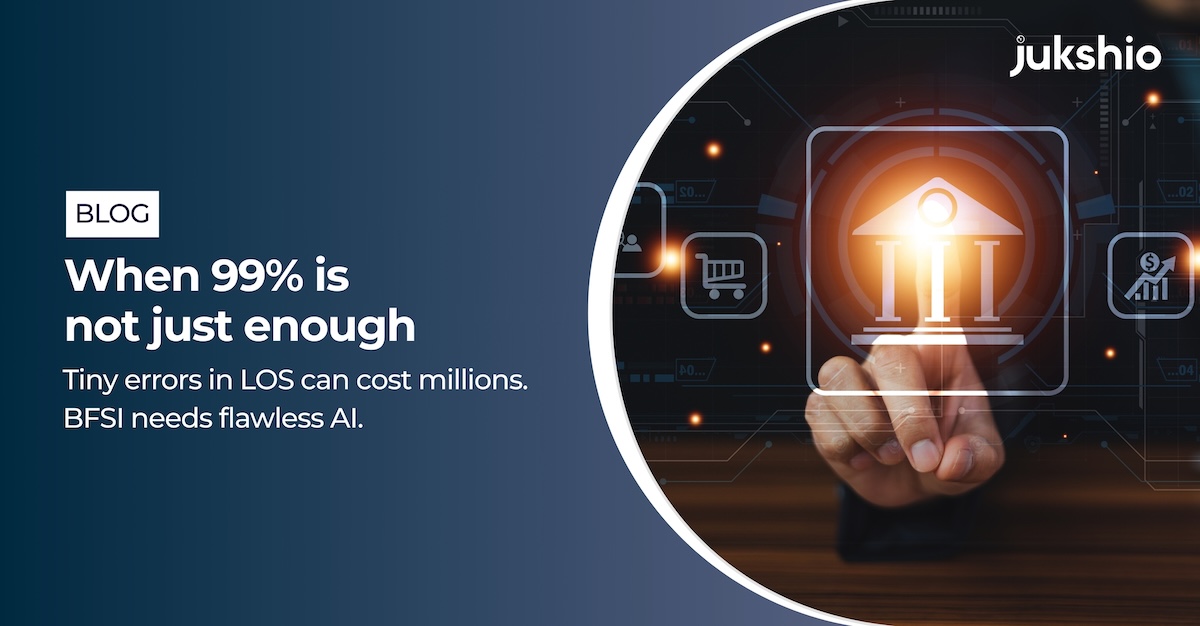Ethical AI in KYC: Balancing Bias Mitigation and Fraud Detection for India’s BFSI Sector

The BFSI sector is undergoing a digital revolution, driven by innovations like artificial intelligence. One critical area where AI is making waves is the KYC process—a cornerstone of compliance and risk management. However, as institutions adopt AI to streamline KYC, they face a dual challenge: mitigating algorithmic bias while ensuring robust fraud detection. Striking this balance is not just a technical hurdle but an ethical imperative. Let’s explore how India’s BFSI sector can navigate this delicate equilibrium.
The Role of AI in Modern KYC
KYC processes are mandatory for verifying customer identities, assessing risks, and preventing financial crimes. Traditional methods, reliant on manual checks and rule-based systems, are time-consuming and prone to human error. AI-powered KYC solutions automate document verification, analyze behavioral patterns, and flag anomalies in real-time. For instance, AI can cross-check Aadhaar details, PAN cards, and facial recognition data faster than any human agent, reducing onboarding time from days to minutes.
In India, where the RBI mandates strict KYC norms, AI helps institutions comply efficiently while scaling operations—a necessity in a country with over 1.4 billion people and a growing fintech user base.
The Ethical Dilemma: Bias in AI-Driven KYC
While AI offers speed and accuracy, its algorithms are only as unbiased as the data they’re trained on. In India’s diverse landscape, socioeconomic, linguistic, and regional disparities can inadvertently seep into AI models. For example:
- Geographic Bias: An AI model trained on urban customer data might struggle to verify identities from rural areas with limited digital footprints.
- Language Barriers: OCR tools might misread vernacular documents, leading to false rejections.
- Demographic Gaps: Facial recognition systems have historically shown lower accuracy for women and those with deeper skin tones, risking exclusion.
Such biases can alienate legitimate customers, violate RBI’s fair practices guidelines, and damage institutional trust.
Fraud Detection: The Non-Negotiable Priority
On the flip side, lax fraud detection carries severe consequences. India reported over 14,000 cyber fraud cases in Q1 2023 alone, with synthetic identities, deepfakes, and forged documents becoming sophisticated. AI excels here by:
- Analyzing Patterns: Detecting suspicious transactions or inconsistent customer behavior.
- Cross-Referencing Data: Flagging mismatches between submitted documents and public databases.
- Predictive Risk Scoring: Identifying high-risk profiles using historical fraud data.
For BFSI players, failing to curb fraud means financial losses, regulatory penalties, and reputational harm.
Striking the Balance: Ethical AI in Action
Achieving fairness without compromising security requires a multi-pronged approach:
- Diverse Training Data: Incorporate datasets representing India’s rural-urban divide, multilingual documents, and varied demographics. Partner with regulators to access anonymized public data.
- Explainable AI (XAI): Use transparent models that clarify decision-making. For instance, if an application is rejected, the system should specify whether it’s due to a blurry photo or a mismatched name.
- Human-in-the-Loop (HITL): Combine AI’s efficiency with human judgment. Ambiguous cases can be escalated to compliance officers for review.
- Bias Audits: Regularly test algorithms for discriminatory outcomes. The Indian government’s upcoming Digital India Act emphasizes accountability in AI systems, making audits a compliance priority.
- Collaboration: Work with fintechs, NGOs, and academia to address edge cases. For example, NPCI’s initiatives to improve UPI accessibility in rural India offer valuable insights.
Case Study: A Leading NBFC’s Success
A top NBFC’s in India recently revamped its KYC process using ethical AI. By training its model on regional language documents and integrating HITL checks, it reduced false rejections by 40% while cutting fraud instances by 30%.
The Road Ahead
As AI evolves, technologies like blockchain-based KYC and quantum computing could further transform compliance. However, ethical considerations must remain at the forefront. The RBI’s recent discussion paper on AI in finance underscores the need for “responsible innovation,” urging institutions to prioritize inclusivity and transparency.
For India’s BFSI sector, the message is clear: Ethical AI isn’t a constraint—it’s a competitive advantage. By marrying bias mitigation with fraud detection, institutions can build inclusive, secure, and future-ready KYC frameworks.
Final Thoughts
The journey toward ethical AI in KYC is complex but non-negotiable. As custodians of public trust, BFSI players must ensure their algorithms reflect India’s diversity while safeguarding against ever-evolving threats. By embedding ethics into AI design, the sector can pave the way for a financially inclusive, fraud-resilient India.





.jpg)
.jpg)

.png)

